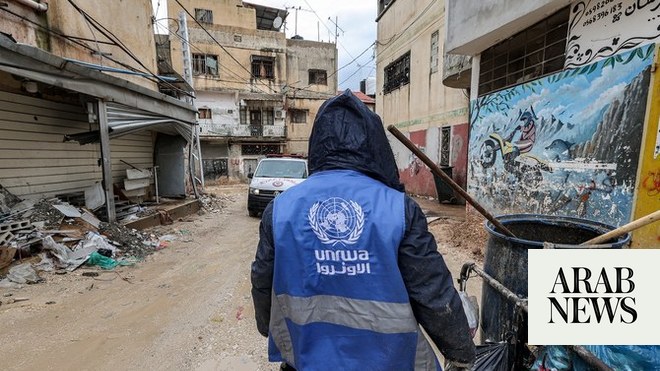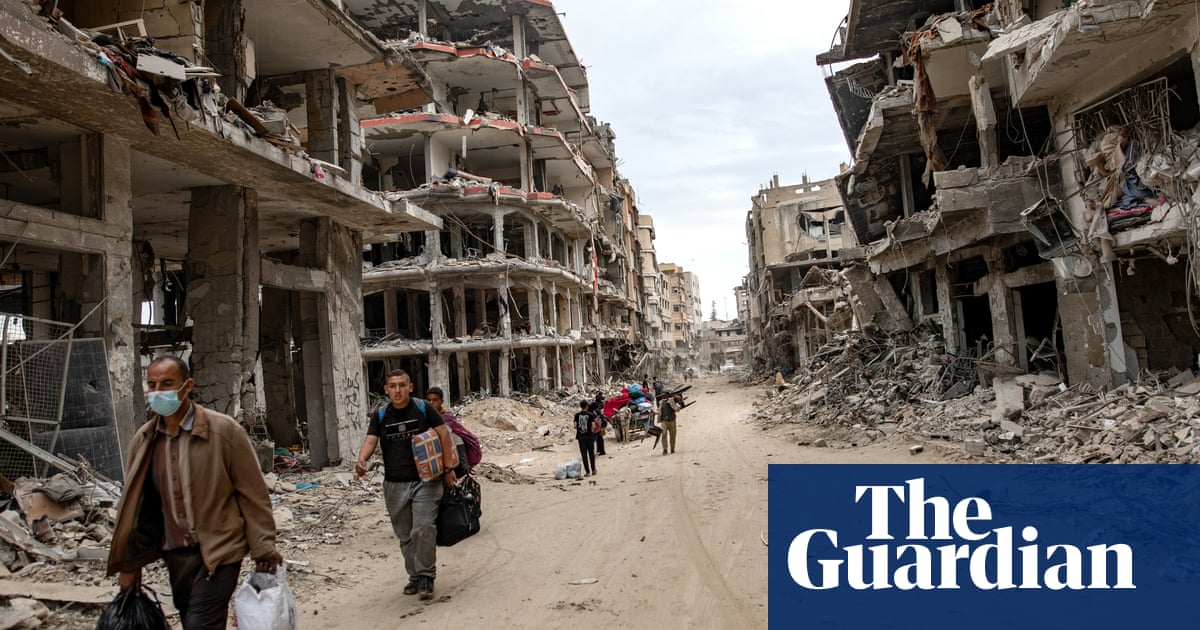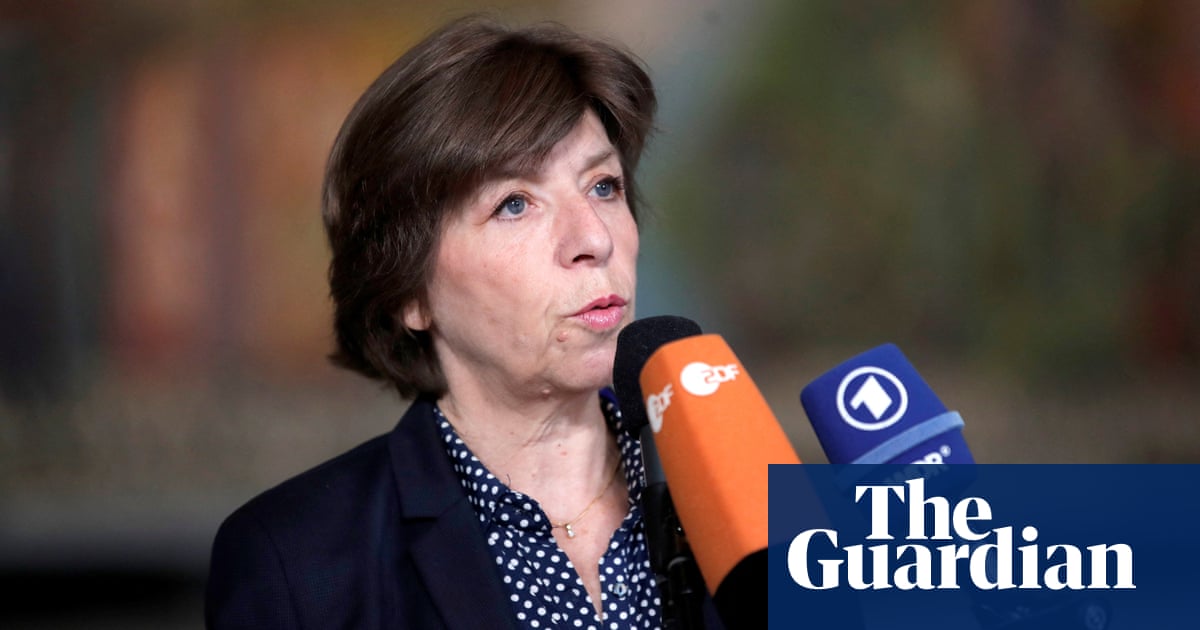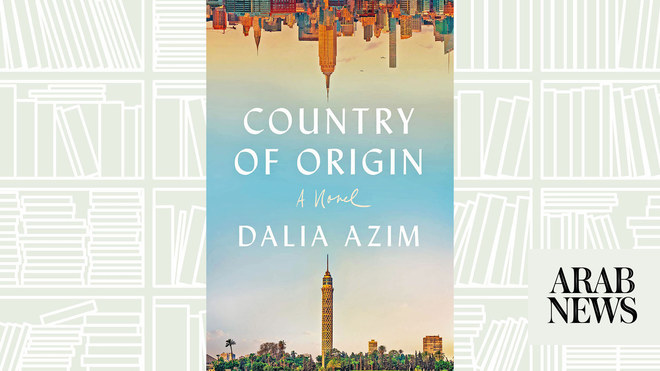
The independent review, ordered by the UN secretary-general, adds that Israel has provided no evidence to back up allegations that 12 UNRWA workers took part in Oct. 7 attacks
The findings of the investigation, led by French former foreign minister, Catherine Colonna, are contained in a wide-ranging 48-page report published on Monday
NEW YORK CITY: Israeli authorities have yet to provide any evidence to back up their allegations that a dozen people who worked for the UN Relief and Works Agency for Palestine Refugees were affiliated with terrorist groups, according to an independent review headed by the French former foreign minister, Catherine Colonna.
Her nine-week investigation began after Israel alleged in January that 12 UNRWA workers took part in the Oct. 7 attacks by Hamas against Israel. The investigators also found that Israel had not previously expressed concerns about any individuals named on the agency staffing lists it had been receiving since 2011.
The wide-ranging 48-page report, published on Monday and seen by Arab News, states: “In the absence of a political solution between Israel and the Palestinians, UNRWA remains pivotal in providing life-saving humanitarian aid and essential social services, particularly in health and education, to Palestinian refugees in Gaza, Jordan, Lebanon, Syria and the West Bank.
“As such, UNRWA is irreplaceable and indispensable to Palestinians’ human and economic development. In addition, many view UNRWA as a humanitarian lifeline.”
The agency, which provides aid and services to Palestinian refugees in Gaza and throughout the region, was thrown into crisis when the Israeli allegations emerged. In response, the US, the biggest single funder of UNRWA, and several other major donors put their funding for the organization on hold. In all, 16 UN member states suspended or paused donations, while others imposed conditions, placing the future of the agency in doubt.
UN Secretary-General Antonio Guterres, in consultation with UNRWA Commissioner General Philippe Lazzarini, ordered an independent review of the claims to evaluate the agency’s adherence to the principle of neutrality, and its response to allegations of breaches of neutrality, particularly within the challenging context of the situation in Gaza.
Guterres also initiated a separate investigation by the UN’s own Office of Internal Oversight Services to determine the accuracy of the allegations against UNRWA staff. The agency also cut its ties with the workers named by Israel.
According to the Colonna report, the amount of money withheld during the pauses in funding amounted to about $450 million. Following the actions taken by the UN in response to the Israeli allegations, several member states reinstated their funding. However, they called for further details about the events in question, and the strengthening of UNRWA mechanisms and procedures to ensure the neutrality of its workers, including its vetting and oversight of staff.
The task of the review group was to “assess whether UNRWA is doing everything within its power to ensure neutrality and respond to allegations of serious neutrality breaches when they are made.”
Colonna told Arab News: “We received excellent cooperation from all sides,” including the Israeli government.
Her report reiterates that “UNRWA and its staff and personnel have a fundamental obligation to maintain neutrality to ensure the integrity of the agency’s mission and the effectiveness of its operations.
“Neutrality is a UN commitment, as one of the four humanitarian principles formally adopted by the General Assembly and upheld by other UN agencies while operating in humanitarian settings. It means
that humanitarian actors must not take sides in hostilities or engage in controversies of a political, racial, religious or ideological nature.”
The report includes more than 50 recommendations for enhancing efforts to ensure the neutrality of more than 32,000 UNRWA workers. They include improvements to internal oversight services, increased in-person training, and additional support from donor nations.
However, the review also acknowledges that existing UNRWA safeguards are already more stringent than those in place at similar organizations.
“UNRWA’s neutrality challenges differ from those of other international organizations due to the magnitude of its operations, with most personnel being locally recruited and recipients of UNRWA services,” the review notes.
Guterres said he has accepted the findings of Colonna’s report and agreed with Lazzarini that UNRWA “will establish an action plan to implement the recommendations contained in the final report.”
The spokesperson for the secretary-general, Stephane Dujarric, said that Guterres “counts on the cooperation of the donor community, the host countries and the staff to fully cooperate in the implementation of the recommendations.
“Moving forward, the secretary-general appeals to all stakeholders to actively support UNRWA, as it is a lifeline for Palestine refugees in the region.”
Colonna said in New York on Monday that “the international community has a responsibility in helping and supporting UNRWA in addressing neutrality issues.”
During its nine-week investigation, her group thoroughly examined the agency’s existing mechanisms and protocols for maintaining neutrality and addressing potential violations. Members of the group visited the UNRWA headquarters and its offices in Amman, Jerusalem and the West Bank, and talked to various stakeholders, including agency officials, donor states, host countries, Israel, the Palestinian Authority, Egypt, other UN agencies, and representatives of nongovernmental organizations.
In all, the review group met or interviewed more than 200 people, including several members of UNRWA staff in Gaza. Direct contact was made with officials from 47 countries and organizations.
The review revealed that UNRWA has in place a significant number of mechanisms and procedures to ensure compliance with humanitarian principles, with an emphasis on neutrality, and that it had adopted a more developed approach to the issue of neutrality than many other similar UN agencies or nongovernmental organizations.
Despite these significant efforts, issues relating to the neutrality of the agency and its staff have persisted. There have been several allegations of breaches of neutrality rules and disciplinary measures were taken in response, the report noted, but none of the prior allegations were as serious as the ones made by Israeli authorities in January this year.
A common criticism leveled by Israel against UNRWA is the alleged use in schools throughout the region of Palestinian Authority textbooks that contain antisemitic material. However, international studies have found minimal evidence to substantiate this.
“Three international assessments of PA textbooks in recent years have provided a nuanced picture,” the Colonna report said. “Two identified presence of bias and antagonistic content but did not provide evidence of antisemitic content.
“The third assessment, by the Georg Eckert Institute (in Germany), studied 156 PA textbooks and identified two examples that it found to display antisemitic motifs but noted that one of them had already been removed. The other has been altered.”
A spokesperson for the Israeli Foreign Ministry on Monday said Colonna’s report was “insufficient,” ignores the severity of the problem, and offers cosmetic solutions that do not deal with the enormous scope of the infiltration of UNRWA by Hamas.












